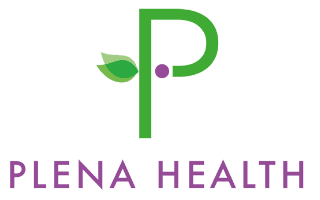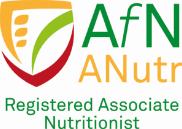Getting pregnant should be the most natural thing in the world.
All too often though, it’s a struggle to start a family. Perhaps you have PCOS and have been told that it will be difficult to get pregnant. Maybe you’re a bit older and worried you have left it too late. Or, possibly, you’ve suffered gestational diabetes in a previous pregnancy and would like to minimise the risk of it happening again.
The good news: none of these issues need to be a barrier to conceiving and enjoying a successful pregnancy. Many of the challenges they represent can be addressed by improving your diet and understanding the impact of good food on your body’s reproductive hormones.
Time to rewrite your story
Optimising your pre-pregnancy nutrition will:
increase your chances of conceiving naturally, or boost your chances of success with IVF.
put your body in the perfect place to start a pregnancy.
provide a nurturing environment for a baby to grow and thrive in.
help you maintain a healthy balanced diet that supports you and your baby, and reduce cravings for different types of foods
help you ‘blossom’ during pregnancy and enjoy the experience
ensure you have the nutritional reserves for successful breastfeeding
Eating for two…
choose quality, not quantity
Nutrients for fertility and pregnancy
Roll over the images to see information about the nutrients
PROTEINS
Red meat, Fish and seafood
Help stabilise blood sugar and reduce hunger pangs and cravings for sugary treats. Protein snacks can help with nausea. Your body’s protein requirements are 39% higher than usual in early pregnancy (up to 20 weeks) and 73% higher after 20 weeks.
FATS
Grass-fed butter, coconut oil, avocado oil, extra-virgin Olive oil
A good source of constant, slow energy that does not raise your blood sugar or insulin levels
POTASSIUM
Bananas, avocados.
Reduces bloating and relieves menstrual cramps.
IODINE
white fish and diary
Optimise fertility and fetal growth
CALCIUM
Dairy foods
Helps before and during pregnancy to form baby’s bones
CHOLINE
Liver, eggs, salmon, butter
Affects baby’s brain development; reduces cravings and fewer spikes in blood sugar
Folate (VITAMIN B9)
Leafy green vegetables, brussels sprouts, peas, chickpeas and kidney beans
Reduces the risk of birth defects
FOLIC ACID
Supplement (400 micrograms per day recommended)
Reduces the risk of birth defects if supplement is taken when trying to get pregnant and up to 12 weeks of pregnancy
Good Cholesterol
Healthy fats (oily fish, nuts, olive oil), fibre (whole grains, fresh fruit and veg)
Necessary for production of oestrogen and progesterone. Has a role in the development of baby’s brain, limbs and cells. Required for healthy breast milk
Reduce your risk of gestational diabetes
The best time to optimise your diet for pregnancy is well before you try to conceive. Improving your diet a year before pregnancy has a much greater impact on your reproductive health than leaving it until you’re actually pregnant.
Your metabolic health – how your body processes nutrients and turns them into energy – can have a significant impact on the development of gestational diabetes (GDM) or carbohydrate intolerance, which affects between 5% and 15% of pregnant women. GDM can cause the baby to produce extra insulin and puts him or her at greater risk of obesity and type 2 diabetes.
Approximately 70% of Pre-eclampsia cases, a potentially serious condition in late pregnancy, is also considered to be metabolic in origin.
A metabolic assessment before you get pregnant could decrease the risk of these two conditions. Resetting the ability of your body to burn fats more effectively will avoid cravings for carb-laden foods which can cause a build-up of excess sugars in the bloodstream.
If you’ve suffered from either condition in a previous pregnancy, you shouldn’t worry it will inevitably happen again. Long term it’s important to know that approximately half of all women who develop GDM in pregnancy go on to develop type 2 diabetes within ten years but, with intervention, that trajectory can be changed.
Knowledge is power
Plena Health founders Yvonne and Danielle are driven to educate women about how nutrition can impact on their chances of a successful pregnancy. Yvonne spent 15 years as VP of Maternal Fetal Health for a diagnostics company and undertook extensive research into GDM and pre-eclampsia, focusing on identifying women most at risk of these conditions.
Understanding the potential nutritional deficiencies that stop you becoming pregnant, or cause issues during pregnancy or breastfeeding, can not only change the course of your childbearing years, but remove a lot of the stress and worry you might otherwise experience.
We can help you gain that understanding and put it into practice.
30-year-old Laura and her partner had been trying to have a baby for ten months. But with a history of PCOS, combined with weight gain, digestive issues, tiredness and mood swings, it was very challenging.
“The medicine I’d been prescribed for PCOS didn’t suit me at all,” she said. “The side effects were difficult to cope with, my weight was a constant struggle and I was worried that it was preventing me from getting pregnant.”
Laura’s gut instinct was correct. The medication prescribed for PCOS can increase your risk of becoming insulin resistant, which can reduce fertility.
Laura contacted Plena Health for an initial 30-minute consultation to discuss her health concerns and goals. We suggested a 12 week programme for Laura. As well as the nutrition review, we conducted an in-clinic assessment of her metabolic flexibility and body composition, via the MetFlexBio® protocol. This was repeated at 4 weekly intervals, to track her progress following the changes in her diet.
Fixing your nutrition is important for both partners
Preconception nutrition isn’t just important for the potential mother-to-be. Both partners should ideally start preparing six to 12 months before trying to conceive. Top tips include reducing alcohol and caffeine intake and prioritising a nutrient rich diet. This means a diet which contains essential nutrients such as vitamin D, iron, magnesium, zinc, B6, B12, folate, vitamin C, healthy fats including DHA/ Omega-3, complete protein and whole grains (fibre).
Find out more about how nutrition affects reproduction and how Plena Health can help get you back into balance.




